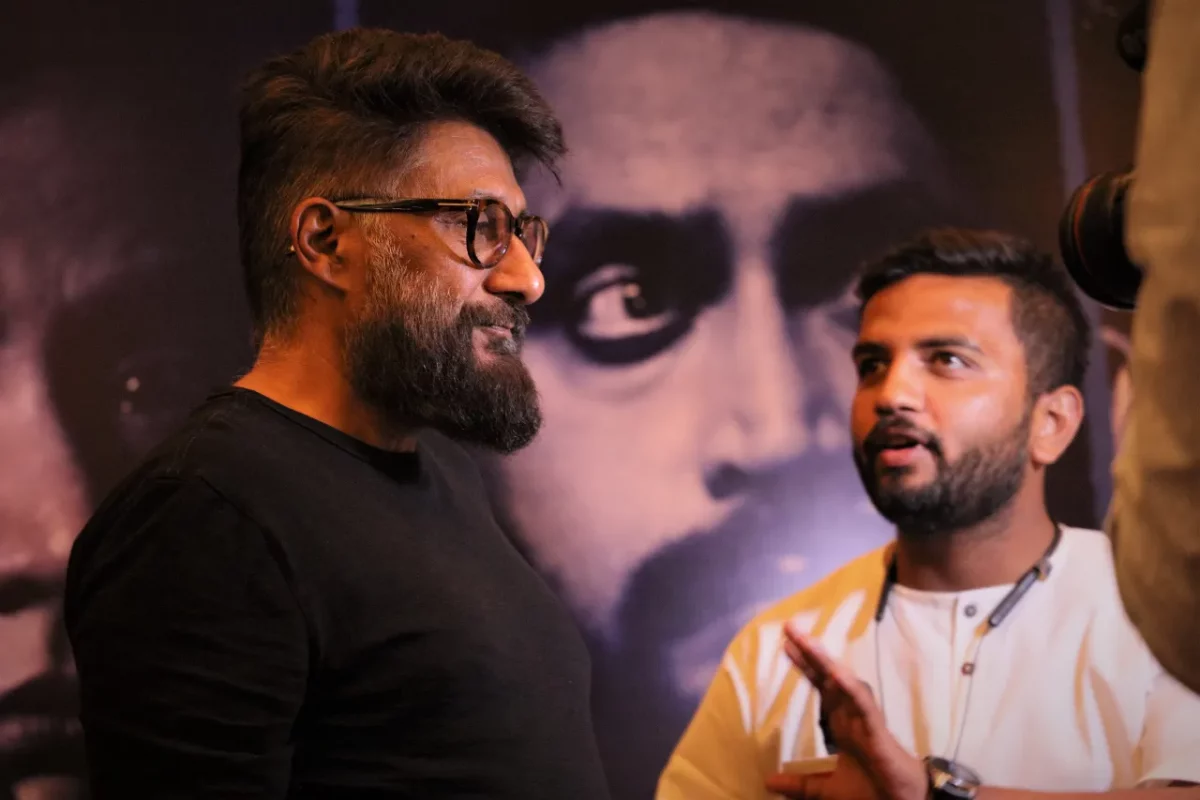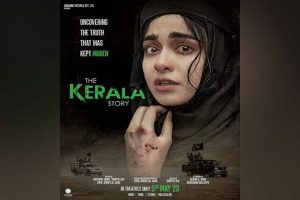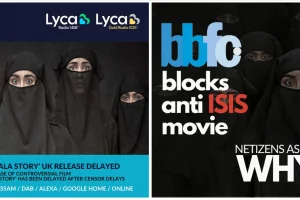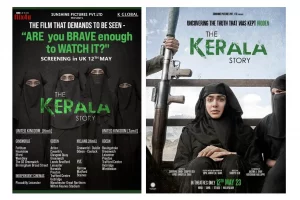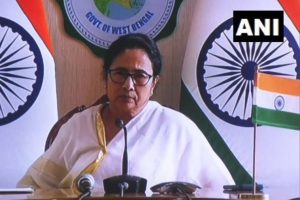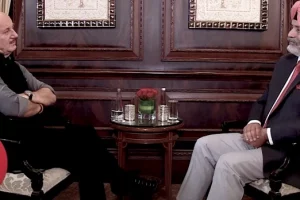Vivek Agnihotri, director of The Kashmir Files, said that the freedom of the press was crushed by the international media on the World Press Freedom Day. Addressing a press conference in New Delhi on Thursday, Agnihotri said agenda-driven international media houses are interfering in Indian politics and dictate terms.
Agnihotri, along with wife—actor Pallavi Joshi, Utpal Kaul—international coordinator of the Global Kashmiri Pandit Diaspora (GKPD) and Dr Shefalika Kotwal—UK-based psychiatrist, revealed the controversy over the cancellation of his press conference twice—by the Foreign Correspondents Club (FCC) and later by the Press Club of India.
He said the president of the FCC contacted him to hold a press conference as, "a lot of foreign correspondents want to talk to me. He wanted me to hold a press conference at the FCC. Senior Zee executive flew down from Mumbai to Delhi, money was paid, receipts were obtained… then the president called me up to say that the event has to be cancelled".

Shefalika Kotwal, Vivek Agnihotri, Pallavi Joshi and Utpal Kaul at the Press Conference in New Delhi (Photo: Rahul Kumar)
"Some of the members of the FCC threatened to resign en masse. Some of them said that nothing about Kashmir will be said from this venue. These include the New York Times, Al Jazeera and Bloomberg. This anti-free press activity took place right opposite the Supreme Court—the temple of justice".
Leveling serious allegations against international media organisations, Agnihotri alleged that the movie had been shown in at least 16 US cities in November last year. "We invited the international media, we pleaded, we begged but none came. After a few weeks when everyone started talking about the Kashmiri Pandit genocide, they realised it was harming their narrative. Within days all major players who malign India internationally started calling me. The only two questions they asked me were ‘Hindu-Muslim’ or ‘Muslims and Modi’.
"None of them tried to ask if the people's stories I showed in the film were true or not."
Taking names, Agnihotri said that the BBC, Al Jazeera, The Economist and many others have not written on the film. "People who failed to report on the Kashmiri Hindu genocide are asking why I made the film. This is a design. A conspiracy against India", Agnihotri said.
The director of The Kashmir Files said that three or four major allegations are being levelled against the film. “Time magazine falsely reported that the film is a piece of fiction. This film is based on recorded testimonials taken by us of the Kashmir victims. None of the media, human rights organisations and other bodies, who should have recorded the testimonies of the victims, did that. The testimonies of all Jews were recorded but not of the Kashmiri Hindus. Only we have recorded the testimonies of the Kashmiri Hindus. And we are proud of that", he emphasised.
IMPORTANT: ALL MEDIA
1. Foreign Correspondents Club, New Delhi has cancelled my PC on 5th May in an undemocratic manner as part of a hate-campaign against #TheKashmirFiles.
2. I am holding an open-house PC at the Press Club of India on the 5th at 4 PM.
All media are invited. pic.twitter.com/aDFbS9FteB— Vivek Ranjan Agnihotri (@vivekagnihotri) May 3, 2022
Agnihotri said that another allegation against The Kashmir Files is that it has been funded by the government of India. "We were researching it openly across the world for four years. Even the name of the film came from the public. The research was outsourced. The GKPD supported us. We travelled across the world for the testimonies". Agnihotri clarified that the film was a modest budget film without government support or funding.
"All those Kashmiri films made in the nineties, none mentioned the Hindus as if the Hindus never lived in Kashmir… as if they did not belong to that land. These films glorify terrorists. So, I ask the New York Times if those films were financed by terrorists. My film is critical of the present government also", Agnihotri said.
"Islamophobia is being used against me as a campaign. I have not used the 'Muslim word'. My crew was Muslim. The people working on my unit in Kashmir were Muslims. Nobody had a problem while making this film… it is an anti-terrorism film", he added. He said that Islamophobia is being used as a political weapon against him.
Pallavi Joshi, who has acted in the film said that the film documents the longest running genocide of people in the world. "It is based on truth. Social organisations of the Sikhs, Telugus, Jews and even medics helped us organise shows for our film". She added that a congressional reception was given to them in the US. "We were invited to the holocaust memorial and even at the Martin Luther King institute".
Speaking about the block-buster response to the film, she said that the movie is running to jam packed movie halls in countries like Lithuania and many others with little Indian population and "is the most reviewed film on the internet across faiths, ethnicities and nationalities".
Utpal Kaul, who is the international coordinator for a Kashmiri Hindu organisation, said that 20,000 houses belonging to Kashmiri Hindus were burnt, 16,600 people were killed, temples desecrated yet people do not think that this is a genocide. "I lost seven people in my family. One boy from my office was stabbed to death", said Kaul, who broke down into tears numerous times during the course of the press conference.
Talking about the Hindu connection with Kashmir, Kaul said: " Kashmir is the fountainhead of Hindus for 10,000 years. Produced Shaivism, Upnishads and so much more but the international media has portrayed an anti-India, anti-Hindu narrative".
UK-based psychiatrist Shefalika Kaul said: "Ours is a traumatised community. The Kashmiri Hindus have been suffering collective PTSD. For 32 years nobody wrote about us, nobody spoke about us till now".
She added that after the release of the movie, "we are spending so much time refuting the allegations and articles in the BBC, Al Jazeera, New York Times who keep writing that this is fiction, this is Islamophobia".
Read More:
New Zealand clears The Kashmir Files—to be shown in country next week
The Kashmir Files impact: Activist wants Indian film makers to document Baloch struggle






